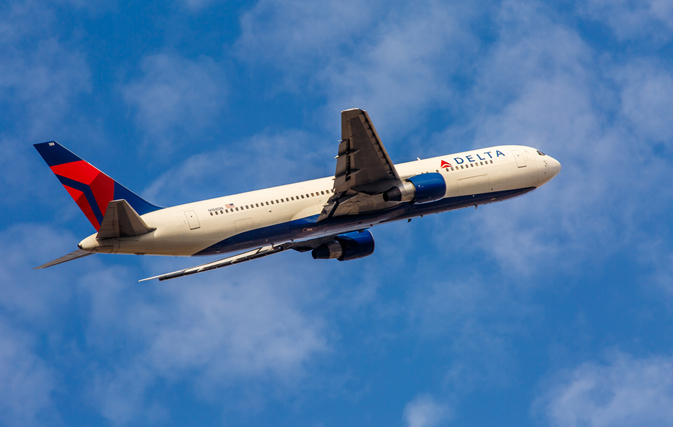DALLAS — Cheaper jet fuel thanks to falling oil prices helped Delta Air Lines earn $980 million in the fourth quarter despite lower revenue than a year ago.
Delta shares rose 3.3 per cent Tuesday, recovering nearly one-fourth of their losses this month.
Company officials said bookings for this spring are ahead of last year’s pace because lower gasoline and heating bills mean that consumers have more money to spend.
“They seem to be willing to re-invest that into airline purchases but at slightly lower fares,” said Glen Hauenstein, Delta’s executive vice-president of revenue management. “We see demand as very strong.”
Delta forecast that a key measure of pricing power will continue to decline through the first three months of 2016. That could add to investor concern that airlines are adding too many flights while fuel is relatively cheap, which is pushing fares lower.
But so far, any loss from lower fares is dwarfed by fuel savings. Delta and its Delta Connection affiliate saved nearly $2.8 billion, or nearly 65 per cent, on fuel compared with late 2014. The company now spends less on fuel than it does on labour _ the cost of salaries and benefits rose 9 per cent to become Delta’s largest single expense.
And fuel prices are still going down. Delta expects to pay about $1.20 to $1.25 per gallon for fuel in the first quarter, even less than the $1.85 it paid in the fourth quarter.
Atlanta-based Delta’s net income for the fourth quarter contrasted with a loss of $712 million a year earlier, when the airline took a $1.2 billion write-down in the value of fuel hedges, which provide insurance against rising energy prices but cost money when oil prices fall. Delta’s fuel-hedging loss was a far smaller $54 million in the fourth quarter of 2015.
Excluding what it termed one-time items, Delta said it would have earned $1.18 per share, a penny below the average forecast from analysts surveyed by Zacks Investment Research and FactSet.
Revenue fell 2 per cent to $9.50 billion, which Delta blamed on losses due to currency exchange rates. FactSet said analysts predicted $9.61 billion.
Passengers flew more miles but paid about 2 per cent less per mile because of lower average fares. Delta forecast that the per mile figure _ a closely watched indicator of demand and average fares – would fall again, by between 2.5 per cent and 4.5 per cent, in the first quarter of 2016. Company President Ed Bastian blamed international volatility and currency rates, and he predicted that per mile revenue would level off this summer.
Bastian said Delta would focus on strong opportunities including the U.S. market while reducing service in some weaker international regions. New York, Seattle, Los Angeles and Atlanta have been doing well, while the airline lost $10 million because of a turndown in Paris traffic after the November terror attacks, he said on a conference call with investors.
Some analysts believe airlines will try to reassure worried investors by curtailing growth plans for 2016 rather than use cheap fuel to flood the market with more flights.
“The airlines will continue to benefit from lower jet fuel costs as they were profitable with oil up to $114 per barrel and are clearly quite profitable at current levels, even with (fare) discounting,” Helane Becker, an analyst with Cowen and Co., said in a note to clients.
For all of 2015, Delta earned $4.5 billion on revenue of $40.7 billion. It paid employees $1.5 billion in profit sharing, gave shareholders $360 million in dividends and spent $2.2 billion to buy back its own stock, making remaining shares more valuable.
Shares of Delta Air Lines Inc. rose $1.46 to close at $45.96 on Tuesday. They began the day down more than $6, or 12 per cent, since Jan. 1.
